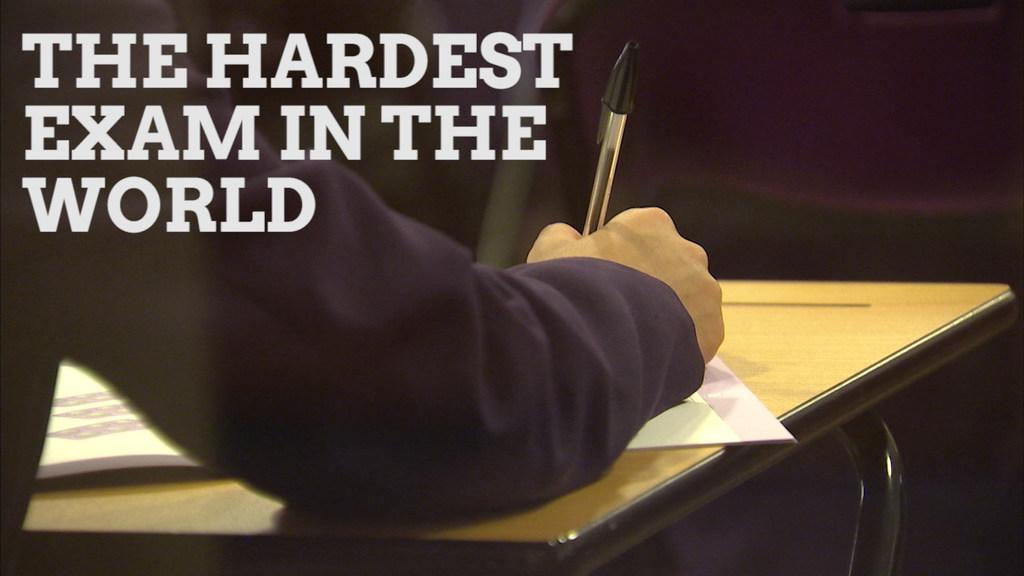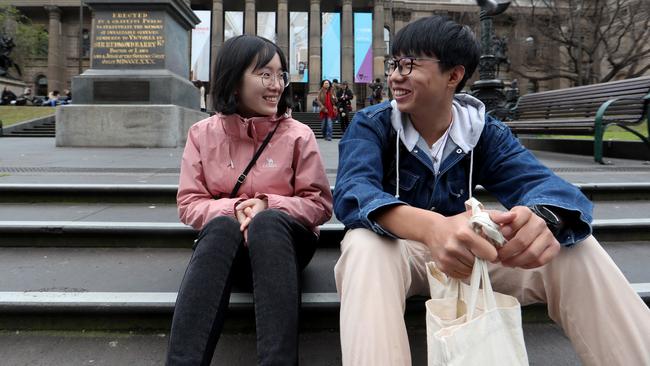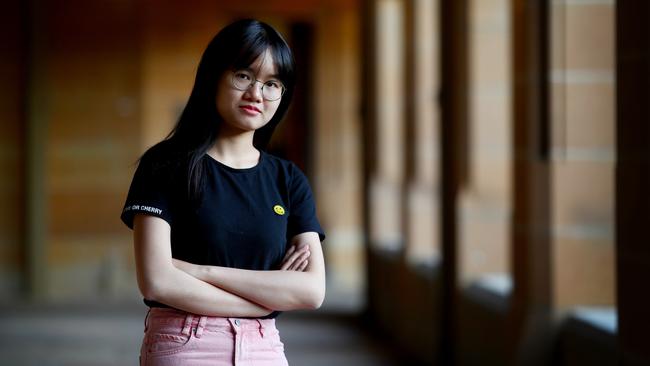China’s coercive strategy on our unis is undeniable
AUSTRALIAN universities are addicted to the money Chinese students bring in. But at what cost to our institutions, and the students themselves, asks Catherine Priestley.

Rendezview
Don't miss out on the headlines from Rendezview. Followed categories will be added to My News.
COMMUNISTS have truly undergone a transformation.
Once notorious for their poverty, they’re now famous for their growth.
They give speeches at the World Economic Forum in Davos. They defend free trade, shun protectionism and market themselves as environmental progressives. They speak of a globalised world where everyone benefits, so they open their doors to foreign goods and services.
Crucially, they spend up big abroad, investing in infrastructure, land, housing and education.
It is a great paradox that liberal capitalists in the pursuit of wealth now look up to communist China.
Yet as China’s economy ascends, the grip of the Communist Party under President Xi tightens, proving that economic liberalisation does not necessarily lead to political freedom.
One-party dictatorship is of course the opposite of the West’s democratic values, but for many in the West the prospect of Chinese money helps to gloss over the differences. Countries like Australia are tempted to believe that there is everything to be gained and nothing to lose.
This mentality looms large in Australian universities. International students, a third of whom are Chinese, pay up to four times as much as a domestic student for their degrees. The number of Chinese internationals is growing fast, rising by 19 per cent between December 2016 and November 2017.
Higher education is lauded as a great Australian export, but how much it influences Chinese students is another matter.
It’s generally accepted that such students struggle with language and social integration and are ignored by local students. This combination means there’s little chance they will grow to appreciate Australian norms of freedom and democracy, and no chance the Australian psyche will accompany them back to China.

While there are worthy attempts made to help overseas students get true value from their studies, too many universities seem more interested in Chinese money than trying to meaningfully engage and influence Chinese students.
To fill this void, international students join large Chinese student associations. Many of these are tied to, and even sponsored by, the Chinese consulate.
This comes at a cost; many suspect students are watched by Beijing and its lieutenants, presumably to make sure they don’t criticise the Chinese Communist Party.
Though they pay exorbitant fees for their degree (some even sell houses to do so), they are never truly allowed to embrace the autonomy of thought which Australian universities purport to cherish.
Meanwhile with Australian institutions failing to influence them, passionate, some nationalistic Chinese students have decided to influence us.
In 2016, the University of Sydney China Development Society was established by international students to “promote a global understanding of China”. It runs talks on China-Australia relations, trade, culture and the Chinese political system.
In 2017, Chinese international students running on the campaign name “Panda Warriors” won more positions on the student representative council than any other group (including Labor, Greens and Liberals) — not bad considering it was their first time running.
After President Xi’s speech at the National Congress of the Communist Party of China, the leader of the students’ campaign posted on Facebook “2017, we are richer and stronger! Look forward to achieving our Chinese dream!”
His dream seems to be Xi’s dream: socialism with Chinese characteristics and rejuvenation of the Chinese nation.

The inbound influence goes deeper still. Confucius Institutes are located in a number of Australian universities. They claim to satisfy a demand for learning Chinese, but are directly administered by Beijing. Last year, the National Association of Scholars recommended all US universities sever ties with the institutes, because of concerns about intellectual freedom. Such tactics should make us question who is really doing the ‘exporting’ in the higher education sector.
What’s more, our universities’ financial dependence on Chinese money is staggering.
There are the direct donations, such as the Communist Party’s annual A$230,000 to the University of Adelaide. And that’s just a tiny fraction of international student fees; as ANU Chancellor Gareth Evans revealed last year “ … universities [are] now totally dependent on those fees for their economic survival.”
Whether it is funding infrastructure using foreign investment, or a mix of financial control and soft power through funding universities, Chinese money is not free money; it comes with strings attached. When it comes to the crunch, China operates on different values; it is an authoritarian state, intent on creating its own global infrastructure.
China’s coercive strategy on campuses is undeniable. Universities should show more concern that these young people, whether they are evangelists for their country or not, are being either used as part of an expansionist program of an authoritarian state, or are subject to its control.
For its part, Australia has too often neglected opportunities for transformative, peer-to-peer relationships and failed to adequately share with overseas students our conception of freedom and the merits of our democratic system. But because Australian universities are so financially dependent they also risk falling into a debt-trap, which makes these “soft power” goals more difficult to achieve.
It is only because we live in a society which scrutinises institutions through free expression that our universities can be woken up to this reality. We should be thankful for this. After all, there is much more than money at stake.
Catherine Priestley is an engineering student at the University of Sydney.
